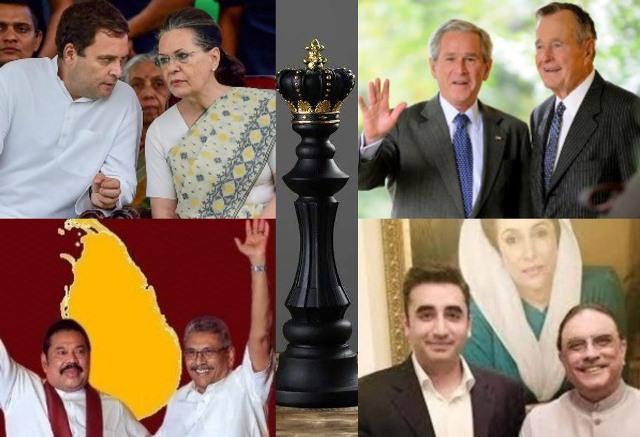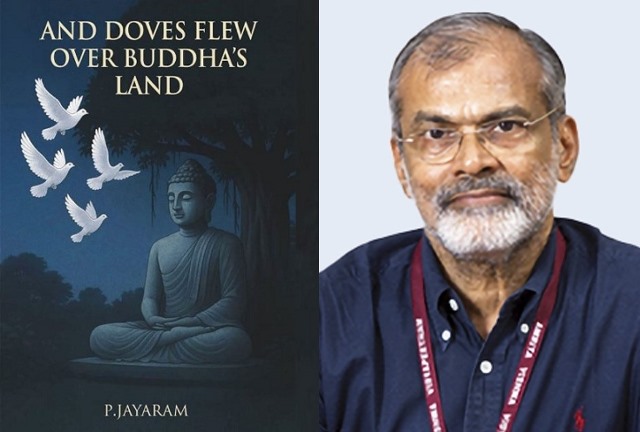
Dynastic Politics & Daddy’s Business
Syria just saw the end of 50 years of rule by the Al-Asad family when President Bashar Al-Asad fled the country to seek asylum in Russia. His ouster was somewhat similar to that of Bangladesh’s Sheikh Hasina’s departure from Dhaka last August.
A trained eye surgeon, Bashar may or may not begin medical practice in Moscow. Hasina has been active on social media defying her opponents back home. Only a miracle could take her back to Dhaka like Napoleon returned to France. But her party stands a chance, with or without her or her son Sajib Joy Wajed as the leader.
The issue is wide open, and so is the one about Hasina’s chief rival Begum Khaleda Zia. The twice-prime minister is out of jail and political wilderness. Said to be ill, she may promote her son, Tareq Zia, with cases against him being quickly disposed of. That opens the way to his return from exile and to politics. The return of the Zia dynasty seems likely.
Is the rule by political dynasties growing or ending? The answer varies from nation to nation. But favouring family members remains in vogue — everywhere. Outgoing United States President Joe Biden has pardoned his son Hunter, convicted of serious offences and President-elect Donald Trump has announced the appointment of his daughter’s father-in-law as ambassador to France.
Last year’s elections saw the defeat of prominent political families who have ruled Sri Lanka since its independence. No more of Bandanaikes, Premdasas, Jayawardene and Rajapaksas. In Nepal, the Koirala family is no longer as powerful. Some other families remain in Nepal’s political life, but power is wielded by Marxists and Maoists.
Pakistan has witnessed two rival families, the Sharifs and the Bhutto-Zardaris, uniting to keep out Imran Khan who once said that he had no intention of perpetuating his family in power. Asif Ali Zardari is the President in the power-sharing arrangement while Prime Minister Shehbaz Sharif’s daughter Maryam is the chief minister of the most powerful Punjab province. The quasi-feudal society has numerous families wielding power.
Political dynasties are a prevalent form of transmission of political power in many democracies. Does dynastic rule impede development in a country? Much has been studied and written, for and against, on this in many countries. Much of it is political polemics, but a representative example of its impact on society is a 2016 study in Pakistan by academic Ayesha Ali.
The question was whether political dynasties hindered development. She examined the incentives of dynastic politicians to engage in local development in the aftermath of natural disasters. Using the large-scale floods that affected Pakistan in 2010, she studied data from the National Assembly elections, and on spending on development programs by elected politicians in their constituencies from 2008 to 2013. The results show that development expenditures are 10.9 per cent lower in flood-hit areas with dynastic politicians as compared to areas without floods and dynastic politicians. She says that this is suggestive of lower effort by dynastic politicians in a weak democratic system with entrenched political power.
ALSO READ: Is Rahul The Last Mughal Of Gandhi Dynasty?
In India, several families go in and out of power at the national and state levels. The Badals, the Abdullahs, the Chautalas, the Yadavs across UP and Bihar, the Karunanidhi family in Tamil Nadu, the Deve Gowda family in Karnataka and the Pawars, the Chavans, the Shindes and others in Maharashtra. It is an endless list.
The Nehru-Gandhi family has ruled for many years and the Bharatiya Janata Party selectively targets it for seeking to perpetuate vanshvaad. However, the ruling party has numerous leaders who followed their peers in political and public life.
The Nehru-Gandhis can be said to have consolidated their political presence with Priyanka just elected to the Lok Sabha. Now, just every Nehru-Gandhi, from Jawaharlal onwards has been a parliamentarian. That includes the late Sanjay Gandhi, his wife Maneka and his son Varun. However, the BJP has no problem with this branch of the family.
Is the wielding of power by families against democracy? Views differ. Many of the Western democracies that propagate, even dictate, their ideas of democratic rule for others to follow are either headed by hereditary royals or have dominant families. The relative difference is thanks, not to the choice of candidates, but to multi-party systems and regular elections.
Yet, four US political families — Adams, Harrison, Roosevelt and Bush — have each had two members who served as President of the United States. Like the Kennedys, there have been some 700 families in which two or more members have served in Congress, and they account for 1,700 of the 10,000 men and women who have been elected to the federal legislature since 1774.
If there are explanations for why certain families gravitate to political life, it is less clear why the voters choose members of the same families to represent them generation after generation. This is one type of voting behaviour that cannot be blamed on television. America’s political dynasties go back to the colonial period.
By a rough estimate, there are 43 sovereign states with a monarch as head of state, of which 41 are ruled by dynasties across the world. There are currently 26 sovereign dynasties. Prominent political families include Kim of North Korea, Lebanon’s Arslan family, the Hayotamas, called the ‘Kennedys’ of Japan, the Acquinos of the Philippines and the Soekarnos of Indonesia. In Myanmar, Aung San Suu Kyi has struggled to keep power despite being elected.
Political dynasties have long been present in democracies, raising concerns that inequality in the distribution of political power may reflect imperfections in democratic representation. This is the reality.
The larger reality is that it is a basic instinct for a parent or peer to encourage or inject younger family members into whatever trade or profession he/she is. Outside of politics, do we not see leaders of trade and industry, of which the cinema is a big example, launching their progenies? Nor is it remarkable that so many politicians marry the children of politicians. They move in the same social circles. Why, even spiritual power passing is hereditary.
The genetics of politics are strengthened by the tradition that widows of members are often appointed or elected to fill their husbands’ unexpired terms. The public sympathy factor rules succession.
Public life encourages cronyism and rule by oligarchy and the unstated law even in democratic organisations is that the leadership, once elected, would entrench itself in power, undermining the democratic principle of a level playing field.
No law bars it. It is not debated on television because there is mutual silence — teri bhi chup, meri bhi chup. It is universal and perhaps, not surprising that so many children of politicians go into politics. After all, it’s “daddy’s business”. Many doctors’ children go to medical school and so are lawyers, architects and the like passing on their practice. Ditto, the path to Parliament. So why complain?



